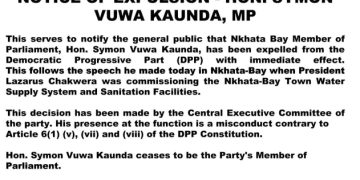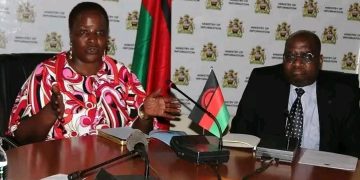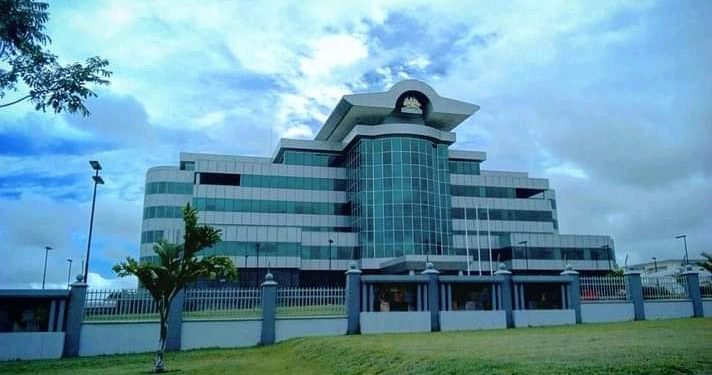Economic experts have rated as a necessary evil a stance by the Reserve Bank of Malawi (RBM)’s Monetary Policy Committee (MPC) to maintain the policy rate—the rate at which banks borrow from the central bank as lender of last resort—at 12.0 percent.
An MPC statement issued on Friday indicates that the MPC observed that the inflation outlook points to heightening of non-food inflationary pressures.
It further notes that food inflation is expected to moderate following the above-average maize production during the 2020/21 agricultural season.
In the statement, the MPC acknowledges that stabilising the aforementioned impending inflationary pressures requires tightening monetary policy.
” however, the MPC recognised that the adverse effects of the newly reinstated Covid pandemic restrictions on economic growth prospects also needed attention.
“In order to balance the efforts of managing the impending inflationary pressures as well as the adverse effects of the recent Covid pandemic restrictions, the Committee decided to maintain the policy rate at 12.0 percent, the Lombard rate at 0.2 percentage points above the policy rate, and the Liquidity Reserve Requirement (LRR) ratio on both local currency and foreign currency deposits at 3.75 percent,” reads the statement.
In an interview, Economics Association of Malawi (Ecama) Executive Director Frank Chikuta said the decision by the MPC to maintain the policy rate was expected.
“Although the primary objective of monetary policy is to control inflation, the unprecedented effects of the Covid pandemic have warranted a decision to support short-term economic recovery. This is not exclusive to the country as many other countries have invoked various policy measures, both fiscal and monetary, to deal with the economic effects of the pandemic.
“The outlook based on the bumper yield for food inflation is correct because the monthly trend is following the expected seasonal pattern and is reflecting the bumper harvest which we have this year. It is only the year-on-year trend which is evolving contrary to the good harvest and this is due to the price controls prescribed by the government coupled with basal effects,” Chikuta said.
In a separate interview, Malawi University of Business and Applied Sciences-based economist Betchani Tchereni said the decision is an indication that expansionary monetary policy is still relevant especially in the wake of the ongoing Covid third wave.
“We need to recover and, for us to do so, we need to maintain an environment that should enable consumption and investment to be enhanced.
“If we don’t go expansionary, we will have problems or difficulties to recover. It is therefore a necessary evil that we should have this expansionary policy,” Tchereni said.
Another economist Frank Kamanga said the main reason for the decision was to support economic activities in the wake of third wave of covid.











































